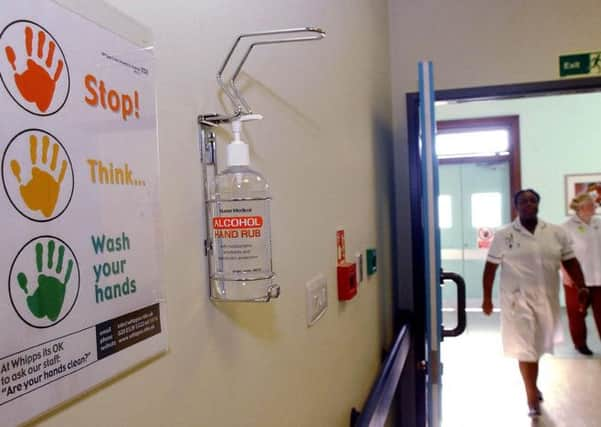Two patients die in Edinburgh C. diff outbreak


NHS Lothian said it was investigating the cluster of cases at the Royal Infirmary of Edinburgh.
The two unnamed patients died from underlying conditions but had tested positive for C. diff, NHS officials confirmed.
Advertisement
Hide AdAdvertisement
Hide AdThe health board said the 14 infected patients were being cared for in isolation and infection prevention and control procedures have been reinforced at the hospital.
The wards where the patients had been treated remain open.
Melanie Johnson, executive nurse director at NHS Lothian, said: “We have identified a cluster of C. diff at the hospital and an investigation is ongoing to establish if there is a link between the cases. As is usual practice, we isolate symptomatic patients, emphasise the importance of infection control precautions and undertake additional cleaning.
“We always act as if cases are linked and implement action to prevent cross-transmission.
CONNECT WITH THE SCOTSMAN
• Subscribe to our daily newsletter (requires registration) and get the latest news, sport and business headlines delivered to your inbox every morning
“Our robust surveillance procedures meant that we were able to identify these cases quickly and take the appropriate action.”
All patients known to have been infected with C. diff and their relatives have been informed, the health board said.
C. diff is a bacteria found in the gut and rarely causes any problems in healthy people.
However, some antibiotics used to treat other conditions can cause C. diff to flourish, producing toxins which cause symptoms such as diarrhoea and fever. C. diff infection mostly happens in healthcare environments, with people over 65 being most at risk.
Advertisement
Hide AdAdvertisement
Hide AdProper hand hygiene, careful prescription of antibiotics and high cleaning standards can prevent infection and recurrence.
The latest cases come just a month after a major inquiry into an outbreak of C. diff at Vale of Leven hospital in Dunbartonshire. Between 2007 and 2008, 143 patients contracted C. diff, which was a contributory factor in 34 deaths.
Lord MacLean, who led the probe, said NHS Greater Glasgow and Clyde had “badly let down” patients. The health board apologised unreservedly for a “terrible failure”.
The inquiry discovered serious personal and systemic failures. Lord MacLean said “systems were simply not adequate to tackle effectively a healthcare associated infection” like C. diff.
He added: “The major lesson to be learned is that what happened at Vale of Leven Hospital to cause such personal suffering should never be allowed to happen again.”
Levels of C. diff among hospital patients have, however, fallen in recent years, statistics show.
Last night, it emerged that ward 16 at the Dumfries and Galloway Royal Infirmary has been shut temporarily due to an outbreak of sickness and diarrhoea affecting five patients and one member of staff.
Norovirus has not been confirmed at this stage.
SCOTSMAN TABLET AND IPHONE APPS